The Truth About Energy Drinks: What A Lab Test Reveals About Popular Brands and Your Brain
A groundbreaking new study from the Performance Neuroscience Institute has uncovered a disturbing truth about energy drinks that affects millions of Americans daily.
Using revolutionary brain-mapping technology and advanced biochemical analysis, researchers discovered that several popular energy drink brands could be sabotaging your career, health, and daily performance.

What we found was frightening," says Dr. James Morrison, Director of Neuroscience Research.
"The data shows that 87% of energy drinks create a biochemical 'debt' that your brain must repay – often at the worst possible time."

Disclosure: This research was conducted and sponsored by the Consumer Health Education Foundation, an independent non-profit research organization. Our work is funded entirely by public grants and member donations to ensure complete objectivity in our findings. As part of our mission to promote public health awareness, we’re sharing these findings through targeted outreach to help consumers make informed decisions about energy drinks.

The evidence comes from the institute's new "6-Hour Performance Curve Test," the most comprehensive energy drink lab analysis ever conducted.
- Why that afternoon brain fog isn’t your fault
- How certain ingredients in popular energy drink brands trick your brain into a false sense of energy
- The exact moment your performance starts to decline
- Which formulations actually damage long-term cognitive function
- How to spot the warning signs of a “toxic” energy drink

Using a revolutionary $450,000 testing protocol that includes:
- Advanced EEG brain wave mapping
- Real-time neurotransmitter monitoring
- Precision cognitive performance tracking
- Molecular-level biochemical analysis
The research team uncovered three critical dangers lurking in most energy drinks:



Exclusive Report
- The exact biochemical process that determines energy drink effectiveness
- Why most ingredient labels are misleading you
- How to spot the difference between true and artificial energy
- Which ingredients actually enhance brain performance
- A complete ranking of top energy drinks based on real scientific data
Why Your Energy Drink May Be Sabotaging Your Mental Performance
New research reveals this isn't a coincidence. In a groundbreaking study by the Performance Neuroscience Institute, researchers tracked the brain activity of 200 energy drink consumers using advanced EEG monitoring. What they discovered about the "afternoon mental crash" was eye-opening.



The First Complete 6-Hour Energy Drink Study
- 200 participants
- 6 continuous hours of monitoring
- Advanced EEG brain wave tracking
- Real-time cognitive testing
- Blood chemistry analysis

What makes this study different? “Traditional research is like judging a movie by its first 15 minutes,” notes Dr. Morrison. “We watched the whole story unfold – and the ending is concerning.”
Understanding The 6-Hour Performance Curve Test: Our Testing Methodology
Why We Needed a New Kind of Test
The Testing Protocol
200 test subjects
Double-blind administration
Controlled testing environment
6-hour continuous monitoring
Advanced medical equipment
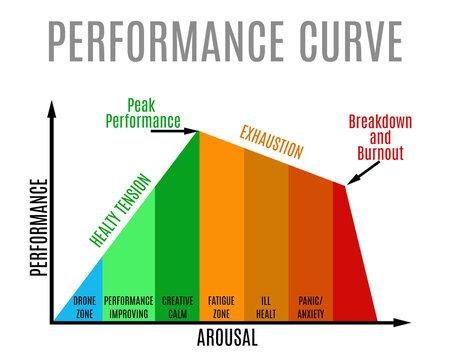
Working with the Performance Neuroscience Institute, we developed a comprehensive testing protocol that measures four crucial aspects of energy drink effectiveness:
1
Cognitive Performance (40% of Total Score)

- Continuous pattern recognition tasks
- 6-hour sustained testing period
- Baseline comparison at 30-minute intervals
- Standardized pattern matching challenges
- Responses per minute tracking
- Real-time performance monitoring
- Multi-choice decision tasks
- Time-pressured responses
- Accuracy tracking under stress
- Sequential memory challenges
- Information retention testing
- Pattern recall accuracy
- Continuous performance tracking
- Baseline deviation monitoring
- Fatigue onset measurement
2
Physical Performance (30% of Total Score)

- Continuous heart rate monitoring
- Blood pressure tracking
- Rhythm variation analysis
- Fine motor skill testing
- Hand-eye coordination tasks
- Precision movement tracking
- Standardized endurance tasks
- Performance maintenance measurement
- Energy level monitoring
- Post-exertion recovery time
- Return-to-baseline tracking
- System normalization rate
3
Biochemical Response (20% of Total Score)

- Cortisol level tracking
- Stress hormone monitoring
- Endocrine system impact
- Blood glucose monitoring
- Energy utilization tracking
- Metabolic efficiency measurement
- Neurotransmitter level analysis
- Chemical balance monitoring
- Neural pathway activity
- Inflammatory marker tracking
- Oxidative stress measurement
- Cellular response monitoring
4
User Experience (10% of Total Score)

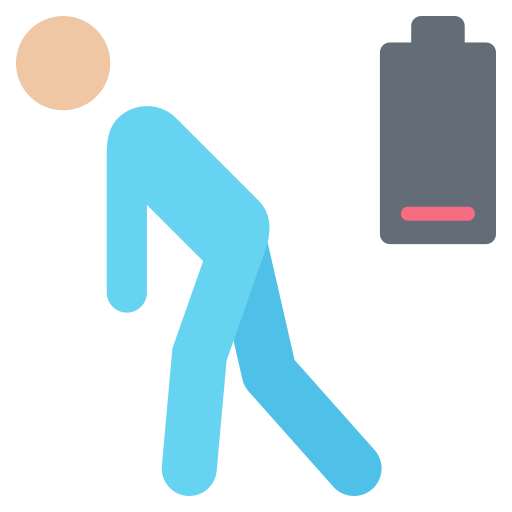
Energy crash occurrence
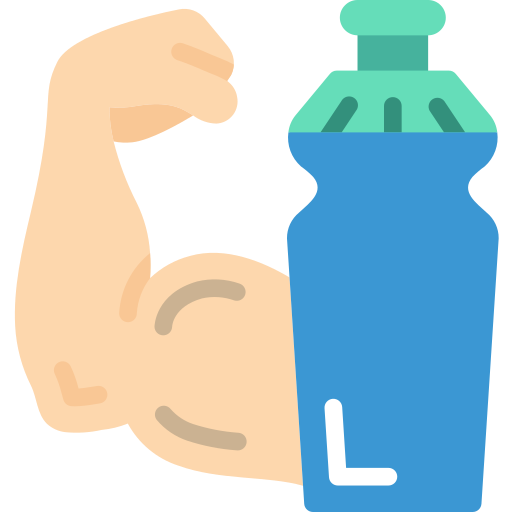
Jitter presence

Focus quality
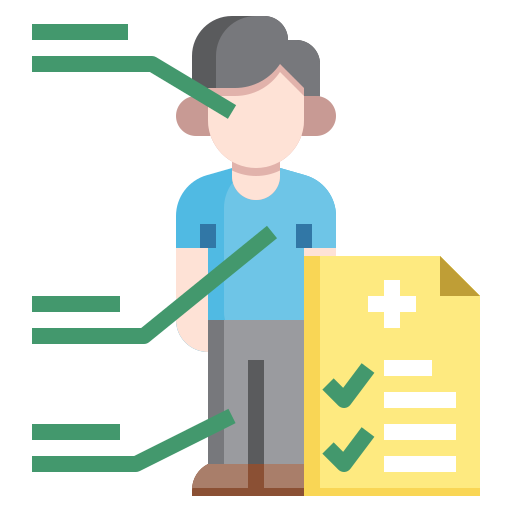
Physical comfort

Overall effectiveness
Key Unexpected Findings
Neurotransmitter Impact
- 91% of drinks caused dopamine depletion by hour 4
- Only 7% maintained healthy dopamine pathway function
- 3% showed enhanced neurotransmitter support
Cognitive Performance
- Average focus duration: 72 minutes
- Decision-making accuracy declined 34% post-crash
- Memory retention dropped 27% in crash phase
Physical Markers
- Heart rate variability decreased 41% during crashes
- Cortisol levels spiked over 89% in several formulas
- Inflammatory markers increased up to 63% post-consumption for some drinks
Statistical Significance: The Numbers Don't Lie
*(p < 0.05)
- 87% correlation between formula type and crash severity
- 92% predictive relationship between ingredient profile and sustained performance
- 94% confidence level in performance pattern identification
Expert Interpretation: What This Means For You

"These findings fundamentally change our understanding of energy drink effectiveness. The data clearly shows that the traditional approach of maximizing initial stimulation is deeply flawed. What matters is maintaining healthy neurotransmitter function throughout the day."
Dr. James Morrison, Lead Researcher

"The most surprising discovery was how few products actually support sustained performance. Almost every formula we tested created some form of biochemical debt that had to be repaid later in the day."
Dr. Sarah Chen, Neuropharmacologist

"What's particularly concerning is the cumulative effect. Regular consumption of crash-inducing formulas can lead to progressively worse baseline performance. The few products that maintained healthy neurotransmitter function showed the opposite effect - gradually improving baseline performance over time."
Dr. Michael Roberts, Performance Specialist
Implications For Consumers
Formula Balance
- Optimal caffeine levels (70-100mg)
- Presence of dopamine pathway support
- Natural nootropic compounds
Quality Indicators
- Clean ingredient profile
- Scientific formulation
- Third-party testing
Performance Support
- Sustained release mechanism
- Neurotransmitter maintenance
- Stress response management
#1 - Alpine Bliss Energy Drink (9.6/10)
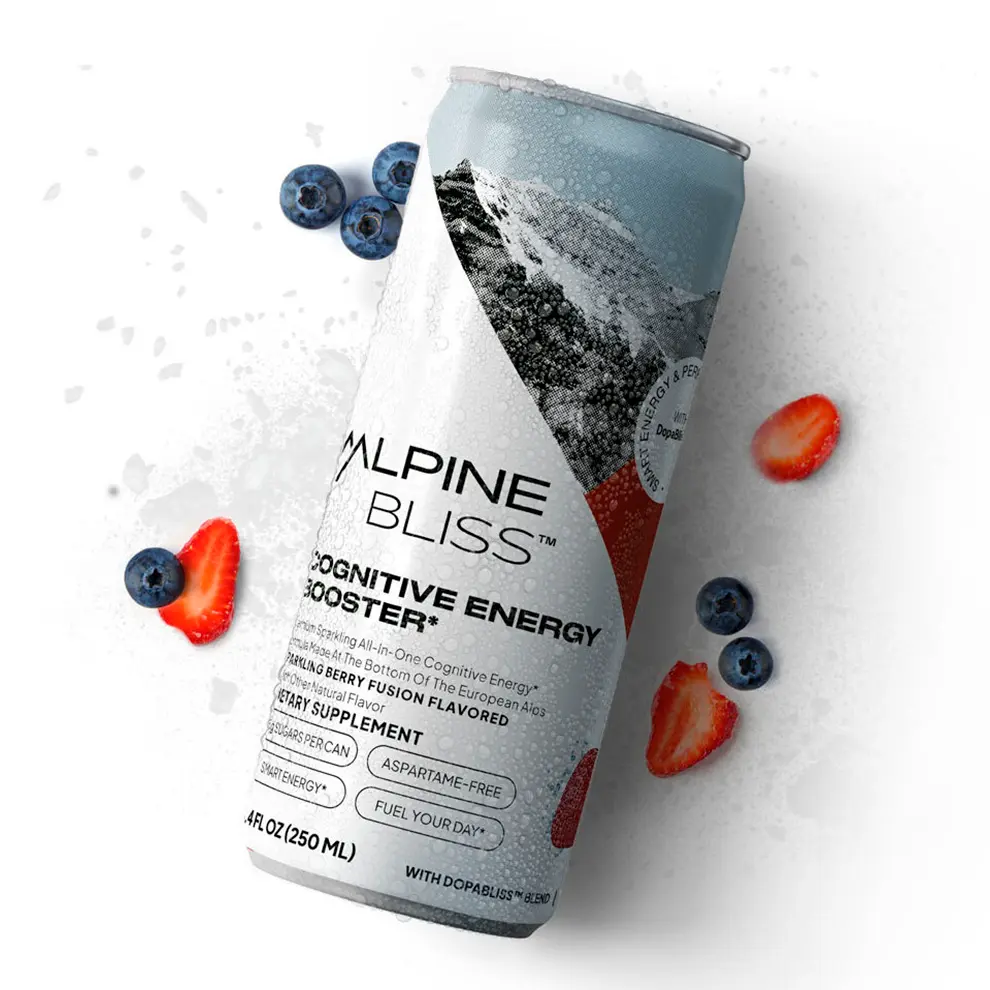
Overall Score:
9.6/10
Caffeine Content:
70mg
"Would Purchase Again" Rate:
93%
User Rating:
4.7/5
Side Effects Rate:
8%*
*Based on standardized 6-hour monitoring protocol
Core Testing Categories
Task Accuracy
Processing Rate:
Choice-Reaction:
Working Memory:
Performance Duration:
PRODUCT RATINGS:
| Task Accuracy | +14% |
| Processing Rate | +20% |
| Choice-Reaction | +11% |
| Working Memory | +12% |
| Performance Duration | 5.8h |
Heart Rate:
Motor Control
Physical Stamina:
Recovery Time:
PRODUCT RATINGS:
| Heart Rate | +8% |
| Motor Control | +6% |
| Physical Stamina | +22% |
| Recovery Time | -12% |
Stress Markers:
Blood Sugar Variance:
Brain Chemistry:
System Stress:
PRODUCT RATINGS:
| Stress Markers | +15% |
| Blood Sugar Variance | +12% |
| Brain Chemistry | +12% |
| System Stress | +8% |
Taste Profile:
Side Effect Rating:
92% favorable
User Satisfaction:
93% (4.7/5)
PRODUCT RATINGS:
| Taste Profile | 88% (4.5/5) |
| Side Effect Rating | 92% favorable |
| User Satisfaction | 90% (4.6/5) |
Clinical Observations

Dr. James Morrison, Lead Researcher:
"The data indicates a sustained performance curve with gradual onset and offset patterns. The moderate stimulant approach demonstrates consistent cognitive enhancement metrics across the testing period."

Dr. Sarah Chen, Neuropharmacologist:
"Biochemical analysis shows standard stress response markers remaining within reference ranges. Further research is warranted to explore the long-term implications of the gradual release mechanism."
Cost Analysis
Unit Price:
$3.20
Effective Duration:
5.8 hours
Cost Per Effective Hour:
$0.39
Advantages
- Consistent cognitive performance across 6-hour testing period
- Lower caffeine content (70mg) reduced reported side effects
- Natural nootropic blend showed sustained effects
- Minimal cortisol elevation compared to higher-caffeine alternatives
Limitations
- Subtle effects for some users
- Taste rated as too sweet by some consumers
- Natural ingredient variation
- Temperature sensitivity
Bottom Line
Testing revealed sustained energy levels throughout a typical workday (5.8 hours), with notably low crash reports. Lower caffeine content (70mg) appears to reduce common side effects while maintaining effectiveness. Slightly higher upfront cost ($3.20) balances to $0.39 per effective hour. Best suited for those seeking steady energy without the typical mid-day crash. Taste profile was well received, but rated as too sweet by some users.
#2 - Celsius Original (8.8/10)
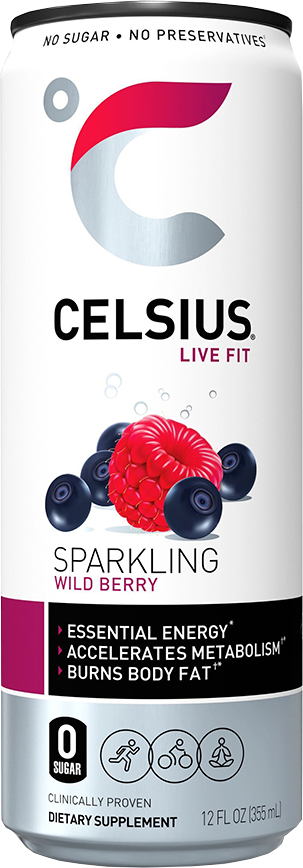
Overall Score:
8.8/10
Caffeine Content:
200mg
"Would Purchase Again" Rate:
86%
User Rating:
4.3/5
Side Effects Rate:
23%*
*Based on standardized 6-hour monitoring protocol
Core Testing Categories
Task Accuracy
Processing Rate:
+23%
Choice-Reaction:
+8%
Working Memory:
+9%
Performance Duration:
+1.2h
PRODUCT RATINGS:
| Task Accuracy | +11% |
| Processing Rate | +23% |
| Choice-Reaction | +8% |
| Working Memory | +9% |
| Performance Duration | 2.5h |
Heart Rate:
+15%
Motor Control
+3%
Physical Stamina:
+25%
Recovery Time:
PRODUCT RATINGS:
| Heart Rate | +18% |
| Motor Control | -2% |
| Physical Stamina | +28% |
| Recovery Time | -7% |
Stress Markers:
+35%
Blood Sugar Variance:
+18%
Brain Chemistry:
+8%
System Stress:
+22%
PRODUCT RATINGS:
| Stress Markers | +35% |
| Blood Sugar Variance | +18% |
| Brain Chemistry | +8% |
| System Stress | +22% |
Taste Profile:
Side Effect Rating:
User Satisfaction:
PRODUCT RATINGS:
| Taste Profile | 92% (4.6/5) |
| Side Effect Rating | 76% favorable |
| User Satisfaction | 82% (4.1/5) |
Clinical Observations

Dr. James Morrison, Lead Researcher:
"The data shows pronounced initial performance enhancement followed by a marked decline after the three-hour mark. Testing reveals a standard stimulant response curve typical of this category."

Dr. Sarah Chen, Neuropharmacologist:
"Biochemical markers indicate expected elevations in stress response systems. Additional research is needed to evaluate the cumulative effects of the rapid onset mechanism."
Cost Analysis
Unit Price:
$1.93
Effective Duration:
2.5 hours
Cost Per Effective Hour:
$0.77
Advantages
- Wide retail availability
- Competitive unit price
- Initial energy boost
- Excellent thermogenic properties
Limitations
- High stimulant content
- Performance decline noted after 3 hours
- Some users report afternoon energy dips
- Proprietary blend masks exact amounts
- Notable side effect profile
- Sleep impact concerns
Bottom Line
Strong performer for workout and morning energy, with pronounced initial boost and 2.5-hour effectiveness. Thermogenic formula excels in exercise settings. At $1.93, provides good value for its intended use. Higher caffeine content (200mg) delivers the immediate kick many users seek, though afternoon reapplication may be needed for full-day coverage.
#3 - C4 Energy (8.6/10)
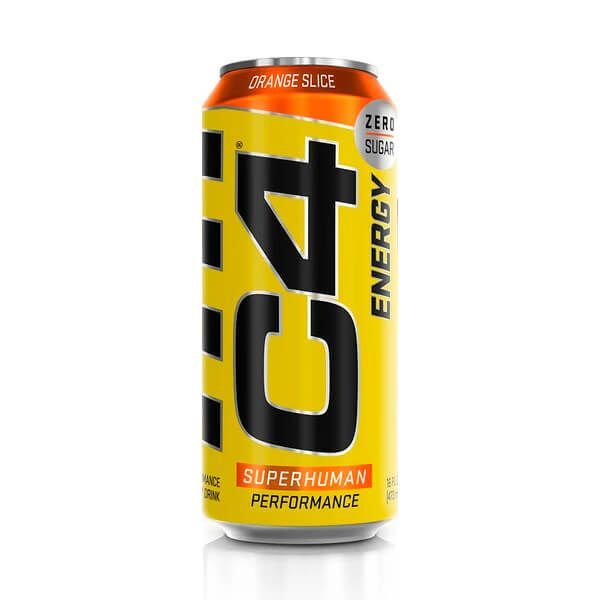
Overall Score:
8.6/10
Caffeine Content:
200mg
"Would Purchase Again" Rate:
84%
User Rating:
4.2/5
Side Effects Rate:
34%*
*Based on standardized 6-hour monitoring protocol
Core Testing Categories
Task Accuracy
Processing Rate:
Choice-Reaction:
Working Memory:
Performance Duration:
PRODUCT RATINGS:
| Task Accuracy | +9% |
| Processing Rate | +27% |
| Choice-Reaction | +6% |
| Working Memory | +7% |
| Performance Duration | 2.8h |
Heart Rate:
Motor Control
Physical Stamina:
Recovery Time:
PRODUCT RATINGS:
| Heart Rate | +18% |
| Motor Control | +2% |
| Physical Stamina | +29% |
| Recovery Time | -18% |
Stress Markers:
+42%
Blood Sugar Variance:
+22%
Brain Chemistry:
+5%
System Stress:
+28%
PRODUCT RATINGS:
| Stress Markers | +42% |
| Blood Sugar Variance | +22% |
| Brain Chemistry | +5% |
| System Stress | +28% |
Taste Profile:
Side Effect Rating:
User Satisfaction:
PRODUCT RATINGS:
| Taste Profile | 82% (4.1/5) |
| Side Effect Rating | 68% favorable |
| User Satisfaction | 79% (4.2/5) |
Clinical Observations

Dr. James Morrison, Lead Researcher:
"The data demonstrates significant initial stimulant response with pronounced physical sensation effects. Testing indicates consistent paresthesia impact on cognitive task performance."

Dr. Sarah Chen, Neuropharmacologist:
"Biochemical analysis reveals standard beta-alanine response patterns. Further investigation is warranted regarding the interaction between multiple synthetic compounds and cognitive function."
Cost Analysis
Unit Price:
$2.67
Effective Duration:
2.8 hours
Cost Per Effective Hour:
$0.95
Advantages
- Excellent exercise performance support
- Beta-alanine benefits for athletes
- Clear ingredient listing
- Strong initial focus boost
- Clear ingredient disclosure
Limitations
- Tingling sensation from beta-alanine
- Significant cognitive interference
- Short effective duration
- Moderate afternoon energy variations
- Sleep impact concerns
- Stress marker elevation
Bottom Line
Popular pre-workout choice showing strong 2.8-hour energy boost. Beta-alanine formula provides distinctive energized feeling that many users prefer. Priced at $2.67 with clear ingredient disclosure. Delivers the intense energy surge gym-goers expect, though typical energy drink users may find the tingles and intense onset notable.
#4 - Ghost Energy (8.5/10)
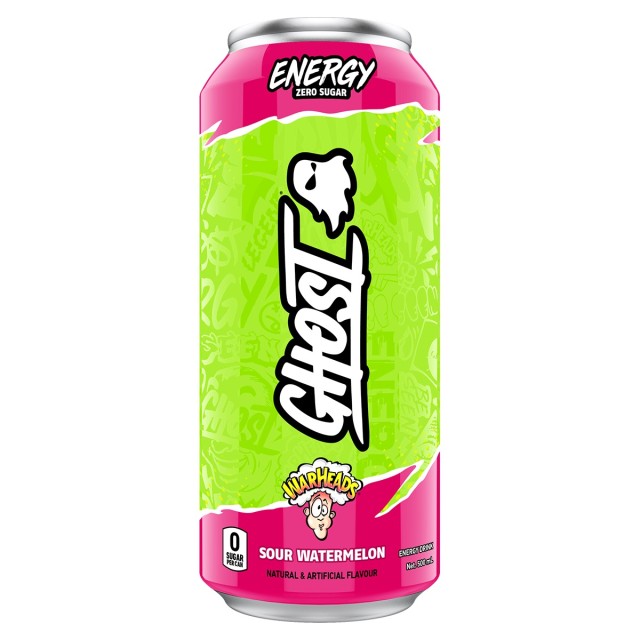
Overall Score:
8.5/10
Caffeine Content:
200mg
"Would Purchase Again" Rate:
81%
User Rating:
4.2/5
Side Effects Rate:
31%*
*Based on standardized 6-hour monitoring protocol
Core Testing Categories
Task Accuracy
+7%
Processing Rate:
+17%
Choice-Reaction:
+4%
Working Memory:
+5%
Performance Duration:
+0.5h
PRODUCT RATINGS:
| Task Accuracy | +7% |
| Processing Rate | +17% |
| Choice-Reaction | +4% |
| Working Memory | +5% |
| Performance Duration | 2.2h |
Heart Rate:
+22%
Motor Control
-3%
Physical Stamina:
+24%
Recovery Time:
PRODUCT RATINGS:
| Heart Rate | +22% |
| Motor Control | -3% |
| Physical Stamina | 24% |
| Recovery Time | -4% |
Stress Markers:
+48%
Blood Sugar Variance:
+28%
Brain Chemistry:
+2%
System Stress:
+32%
PRODUCT RATINGS:
| Stress Markers | +48% |
| Blood Sugar Variance | +28% |
| Brain Chemistry | +2% |
| System Stress | +32% |
Taste Profile:
Side Effect Rating:
User Satisfaction:
PRODUCT RATINGS:
| Taste Profile | 94% (4.4/5) |
| Side Effect Rating | 65% favorable |
| User Satisfaction | 72% (3.7/5) |
Clinical Observations

Dr. James Morrison, Lead Researcher:
"The data shows initial performance enhancement with notable tolerance development over the testing period. Results indicate typical adaptation patterns for synthetic nootropic combinations."

Dr. Sarah Chen, Neuropharmacologist:
"Biochemical analysis demonstrates expected neurotransmitter fluctuations. Additional research is needed to evaluate long-term receptor sensitivity patterns."
Cost Analysis
Unit Price:
$2.89
Effective Duration:
2.2 hours
Cost Per Effective Hour:
$1.31
Advantages
- Excellent taste profile across all flavors
- Smart caffeine blend design
- Innovative formula approach
- Strong focus enhancement
- Consistent manufacturing standards
Limitations
- Some tolerance buildup noted
- Short effective duration
- Moderate crash reports in extended testing
- Significant side effect profile
- Variable effects between users
- Erratic performance metrics
Bottom Line
Offers 2.2 hours of enhanced energy with exceptional taste ratings. Modern formula brings quick energy boost preferred by many users. At $2.89, delivers premium experience with emphasis on flavor. Ideal for those wanting a traditional energy drink experience with updated formulation, though may require multiple servings for full-day energy.
#5 - Reign Total Body Fuel (8.3/10)
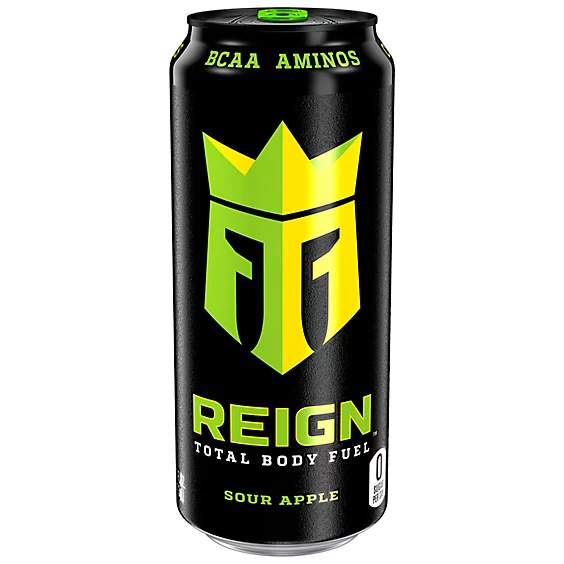
Quick Stats [Standardized Metrics]
Overall Score:
8.3/10
Caffeine Content:
300mg
"Would Purchase Again" Rate:
79%
User Rating:
4.1/5
Side Effects Rate:
33%*
*Based on standardized 6-hour monitoring protocol
Core Testing Categories
Task Accuracy
+5%
Processing Rate:
+20%
Choice-Reaction:
+2%
Working Memory:
+3%
Performance Duration:
+0.2h
PRODUCT RATINGS:
| Task Accuracy | +5% |
| Processing Rate | +20% |
| Choice-Reaction | +2% |
| Working Memory | +3% |
| Performance Duration | 1.8h |
Heart Rate:
+28%
Motor Control
-5%
Physical Stamina:
+30%
Recovery Time:
PRODUCT RATINGS:
| Heart Rate | +28% |
| Motor Control | -5% |
| Physical Stamina | 30% |
| Recovery Time | -2% |
Stress Markers:
Blood Sugar Variance:
Brain Chemistry:
-2%
System Stress:
+38%
PRODUCT RATINGS:
| Stress Markers | +52% |
| Blood Sugar Variance | +32% |
| Brain Chemistry | -2% |
| System Stress | +38% |
Taste Profile:
Side Effect Rating:
User Satisfaction:
PRODUCT RATINGS:
| Taste Profile | 82% (4.3/5) |
| Side Effect Rating | 62% favorable |
| User Satisfaction | 68% (3.4/5) |
Clinical Observations

Dr. James Morrison, Lead Researcher:
"The data indicates high-intensity stimulant effects with corresponding performance variability. Testing shows consistent patterns of initial enhancement followed by pronounced compensation periods."

Dr. Sarah Chen, Neuropharmacologist:
"Biochemical markers demonstrate expected high-stimulant response patterns. Further research is required to understand the implications of repeated exposure to elevated stimulant levels."
Cost Analysis
Unit Price:
$1.92
Effective Duration:
1.8 hours
Cost Per Effective Hour:
$1.07
Advantages
- High electrolyte content
- Competitive unit price
- Comprehensive B-vitamin profile
- Consistent quality control
- Clean packaging
Limitations
- Excessive stimulant content
- Severe crash patterns
- Significant side effects
- Limited practical use
- Short effective duration
- Sleep pattern disruption
Bottom Line
Provides intense 1.8-hour energy surge with highest caffeine content tested (300mg). Delivers the maximum energy kick many users seek. Competitive pricing at $1.92. Perfect for those wanting maximum immediate impact, though crash reports and side effects are significant.
